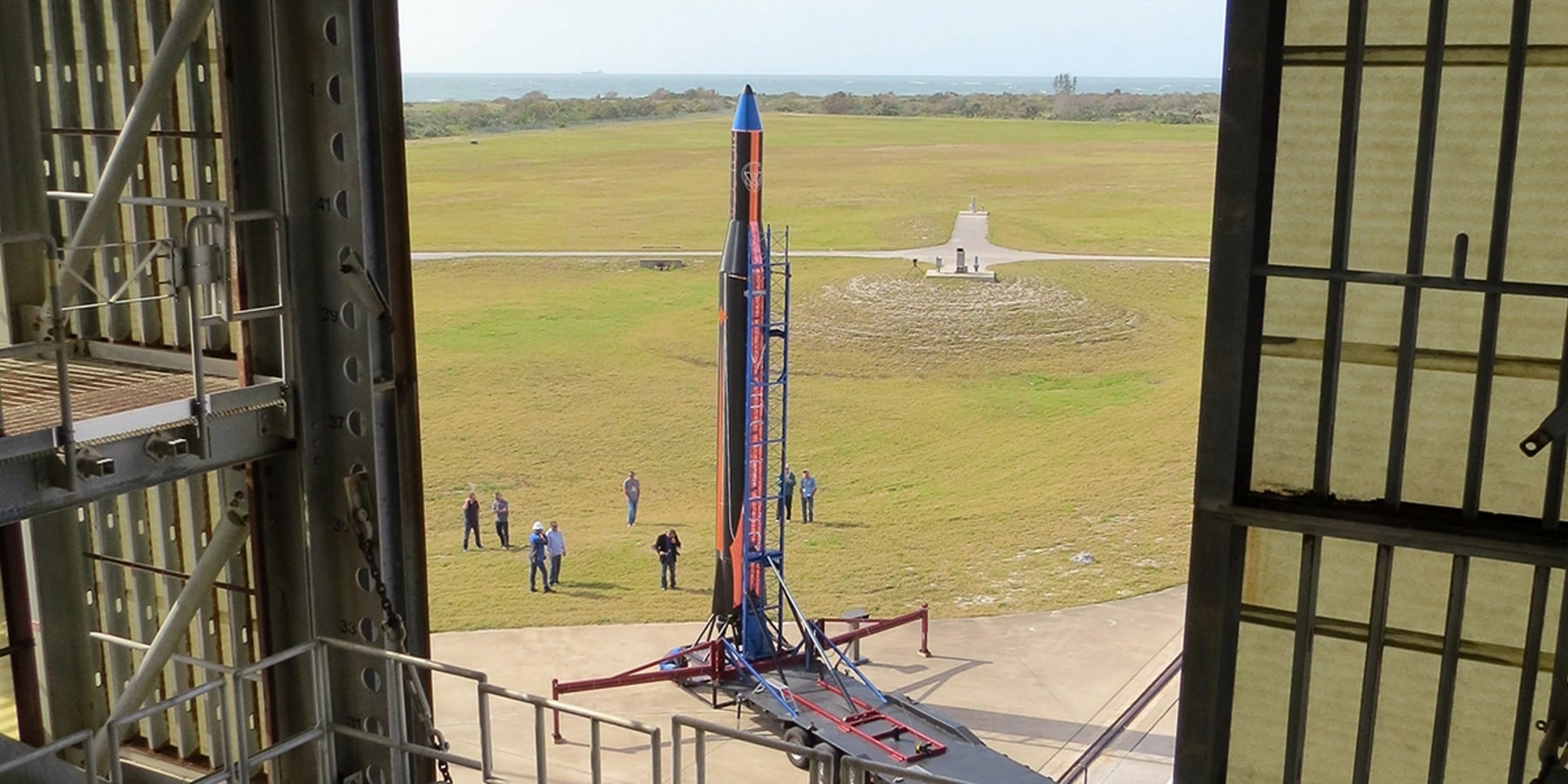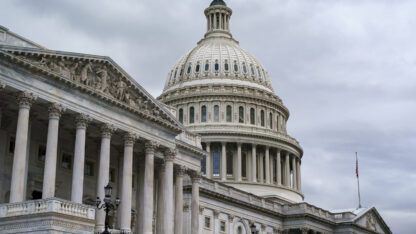Spaceport License Process ‘On Hold’ After Camden County Revises Application

More than four years after formally beginning the process to license a vertical launch spaceport, Camden County has requested an amendment to its application, triggering an indefinite delay. This is a rendering of that original proposal.
Courtesy of Spaceport Camden
Days before the scheduled release of its next major regulatory hurdle with the Federal Aviation Administration, Camden County, in southeast Georgia, decided to amend its spaceport license application, triggering an indefinite delay in its licensing process, according to the FAA.
A final environmental impact statement, originally scheduled for release Monday, would have been a crucial step in the county’s long journey toward a licensed spaceport.
The environmental impact statement is designed to thoroughly vet a project that could have major effects on the environment, and a launch site operator license from the FAA hinges on that environmental report.
Camden formally began the application process with the FAA more than four years ago and has spent about $7 million on the project so far.
FAA environmental specialist Stacey Zee, who has managed the project’s environmental impact statement, said the assessment process is now “on hold until further notice based on the receipt of additional application materials from the applicant.”
In a statement Monday evening, an agency spokesperson said the amendment “removes the request for a medium-to-large rocket with return to a small rocket with no return.”
Camden County’s original proposal was for small to medium-large lift-class, orbital and suborbital vertical launch vehicles, with an option for up to 12 return landings at the site or on a barge out at sea. This amendment removes that landing option.
“Despite years of study and millions of dollars, the Camden County Board of Commissioners has gone back to the drawing board in an attempt to make this project work, all while continuing to keep local communities, state and federal agencies, and elected officials in the dark about the significant concerns to public safety and the environment,” said Brian Gist, senior attorney for the Southern Environmental Law Center.
The Southern Environmental Law Center has sued the county and the FAA for Georgia Open Records Act and Freedom of Information Act violations regarding the Spaceport Camden project.
“The commissioners should stop wasting taxpayer money and recognize the obvious: this is the wrong location for such a risky, unprecedented project,” Gist said.
Megan Derosiers, executive director of One Hundred Miles, a coastal Georgia conservation group that has protested the project, pointed out the original Dec. 16 target date for the final environmental impact statement has been public “for months.”
“This feels like a last-ditch effort by Camden County to keep the spaceport alive into 2020 when they know that the FAA is about to deny their permit,” Derosiers said.
Camden County itself highlighted the Dec. 16 deadline in a news release earlier this fall.
Another component of criticism of the project has been its proximity to the Cumberland Island National Seashore, which lies beneath some of the originally proposed rocket trajectories.
The prospect of limiting the rockets’ size does not assuage the worries of Emily Jones, the southeast campaign director for the National Parks Conservation Association, an independent advocacy group.
“This latest move from Camden County Board of Commissioners does not alleviate park advocates’ concerns about the threat flaming debris and other hazards from spaceport operations pose to public safety, air quality, wildlife and cultural resources at Cumberland Island National Seashore,” she said. “Our national parks are for all of us, not rocket ships.”








